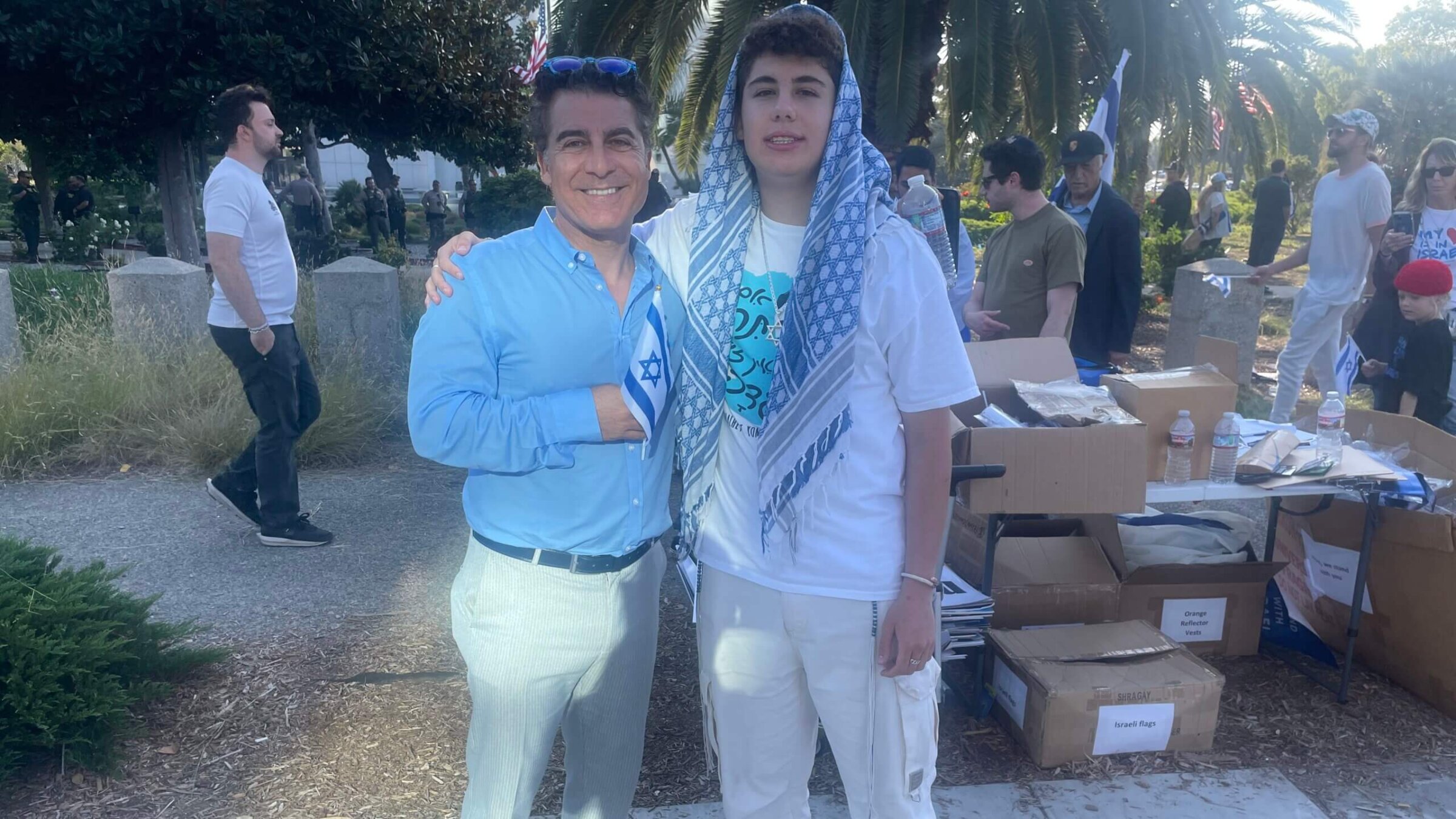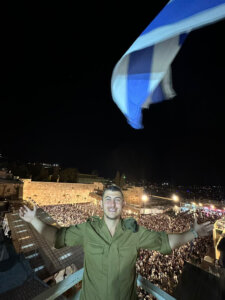Weeks ago he was a Columbia University undergrad. Now this American leads an IDF squad near Gaza.
For about 30 minutes a day, David Ben-Naim gets phone time to update his family in California on his well-being

Gal Ben-Naim and his son Ari at an Israel rally in West Los Angeles. Ari’s older brother David is a lone soldier in the IDF. Photo by Louis Keene
LOS ANGELES – When Gal Ben-Naim sent his son off to Columbia University two years ago, the plan was that David would eventually follow Gal, a banking firm executive, into business. But this summer, when his rising junior was interning at an Israeli venture capital firm, Ben-Naim received a phone call: David still wanted to follow in his father’s footsteps — but this time, that meant joining the IDF.
Ben-Naim and his wife authorized it — per the Israel government’s rules — with different degrees of reluctance. Rabbi Elissa Ben-Naim was ready to grant her son’s wish. Gal hesitated.
“I wanted him to finish college first,” Ben-Naim, 51, said. But he too gave David his blessing. “He thought this was a calling.”

Now, their son is in the heat of battle.
When Israel was attacked by Hamas on Saturday, David’s paratrooper unit joined the fight. After two men in his unit were killed, David, just under 20 years old, became a mefaked kita, a squad leader.
His swearing-in ceremony would have been Wednesday, at the Western Wall. Instead, he’s stationed east of Gaza, Ben-Naim said, replacing more experienced soldiers in the rescue efforts.
Fear and pride
David Ben-Naim is a “lone soldier,” one of thousands of foreign volunteers in the IDF ranks. Many have been enlisted in the war effort — some, like David, just beginning their enlistment and others who have been called up as reserves.
An IDF veteran who was born in Jerusalem, Gal Ben-Naim grew up with stories of combat. His father still carries shrapnel in his body from the Yom Kippur War, and his sister suffers from chronic ailments as a result of driving armored cars during her IDF service.
Still, Ben-Naim, who is past president of American Friends of Sheba Medical Center, which is near Tel Aviv, said he was concerned for his son’s safety.
Prior to David’s enlistment in the elite brigade, in which casualties are often high, his parents had to sign and notarize five pages of forms allowing it.
Gal decided he could not invoke his parental right of refusal without harming his relationship with his son and condemning both to eternal regret.
“We may feel that we gave him too much Zionism and suddenly we want to back up,” Ben-Naim said in an interview at a pro-Israel rally outside the local Federal Building. “But we should be very proud.”
He said David gets 30 minutes of phone time every day, but has been warned to stay off social media. The IDF is concerned about troop morale.
Ben-Naim was counting on those precious moments to receive updates from his son. But he was also hearing from scores of other parents of soldiers in the troop. He showed me a group chat, which was filled with texts, mostly in Hebrew, and pictures sent by their children.
Ben-Naim’s youngest, 16-year-old Ari, wore a blue scarf with a Jewish star pattern to the rally. Ari said he was nervous for his older brother, but that he planned to join the IDF too, when the time came.
“I talk to him whenever I can, and see how he’s doing,” Ari said. “It’s been chaotic, it’s been hard. But it is what it is.”






















